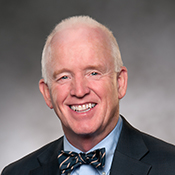John McLaughlin is director of research and analytics at ChanceLight Behavioral Health, Therapy and Education, which serves children and young adults with special needs in 27 states.

John McLaughlin
Director of research and analytics
ChanceLight Behavioral Health, Therapy, and Education
From this contributor
Why model autism programs are rare in public schools
The United States is failing most of its half million school-age children with autism by not giving them a good education.

Why model autism programs are rare in public schools
Explore more from The Transmitter
Neuro’s ark: Spying on the secret sensory world of ticks
Carola Städele, a self-proclaimed “tick magnet,” studies the arachnids’ sensory neurobiology—in other words, how these tiny parasites zero in on their next meal.

Neuro’s ark: Spying on the secret sensory world of ticks
Carola Städele, a self-proclaimed “tick magnet,” studies the arachnids’ sensory neurobiology—in other words, how these tiny parasites zero in on their next meal.
Autism in old age, and more
Here is a roundup of autism-related news and research spotted around the web for the week of 2 March.

Autism in old age, and more
Here is a roundup of autism-related news and research spotted around the web for the week of 2 March.
Lack of reviewers threatens robustness of neuroscience literature
Simple math suggests that small groups of scientists can significantly bias peer review.

Lack of reviewers threatens robustness of neuroscience literature
Simple math suggests that small groups of scientists can significantly bias peer review.